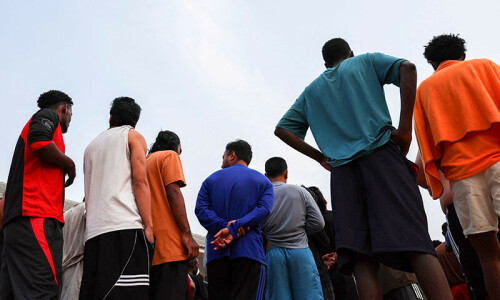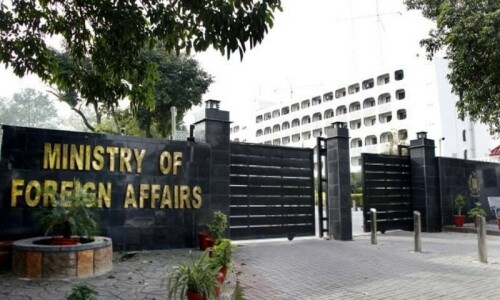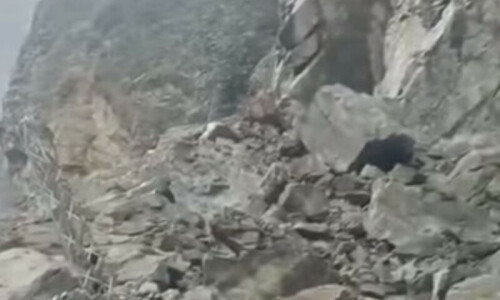
CAIRO: Saboteurs blew up a pipeline that runs through Egypt's North Sinai, state television said, disrupting flows to Israel, after extremist groups called on militants to exploit the unrest that has rocked the government.
State television quoted an official on Saturday as saying that the “situation is very dangerous and explosions were continuing from one spot to another” along the pipeline.
“It is a big terrorist operation”, a state TV reporter said.
A security source in North Sinai said “foreign elements” targeted the branch of the pipe that supplies Jordan.
A security source said the Egyptian army closed the main source of gas supplying the pipeline and were trying to control the fires. Television footage on Al Jazeera and Al Arabiya showed a tower of flames at the scene of the blast.
Israel Radio said, quoting sources in the consortium overseeing imports, the blast did not target supplies to Israel but they had been halted as a precaution.
“We are looking into all the details but it is too soon to say how long supplies (from Egypt) will be affected,” a source in the Israeli National Infrastructure Ministry told Reuters.
Israel gets 40 per cent of its natural gas from Egypt, a deal built on their landmark 1979 peace accord.
The attack happened as demonstrations against President Hosni Mubarak entered their 12th day, with no sign of an end to the confrontation which has pitted the 82-year-old leader against thousands of anti-government protesters.
“Saboteurs took advantage of the security situation and blew up the gas pipeline,” a state television correspondent said.
Unrest
The SITE intelligence group, which monitors al Qaeda and other militant websites, said some groups had been urging militants to attack the pipeline to Israel.
“Jihadists suggested that Muslims in Sinai take advantage of Egyptian unrest and strike the Arish-Ashkelon gas pipeline, arguing that it would have a major impact on Israel,” SITE said.
Egypt is a modest gas exporter, using pipelines to export to Israel, Jordan and other regional states. It also exports via liquefied natural gas (LNG) facilities on its north coast, but those are not in the Sinai region.
The North Sinai source said the attack was carried out by “foreign elements”. “We are now relying on Bedouin leadership in the areas surrounding to help security apparatus with the investigation and give us hints of any other destructive acts,” he said.
“As soon as the gas lines are attacked, the system suspends the flow immediately.”
Egypt declared a high state of alert in the area, according to another security source.
Gunmen opened fire on a local governorate building in North Sinai but no casualties were reported, the source said.
Abdel Wahhab Mabrouk, the governor of North Sinai, told state television: “By closing the taps they contained the fire and we assure the people there are no human losses. It is an act of sabotage.”
Residents in the area reported a huge explosion and said flames were raging in an area near the pipeline in the El-Arish area of north Sinai.
SITE quoted one Islamist website author as saying: “To our brothers, the Bedouins of Sinai, the heroes of Islam, strike with an iron fist, because this is a chance to stop the supply to the Israelites.”
Sinai Bedouins have long grumbled about being neglected and have often sporadically clashed with Egyptian security forces.
Many Bedouin were rounded up after a series of explosions in Sinai tourist resorts between 2004 and 2006.
The Israeli Energy Ministry said its Yam Tetis gas field was under orders to “respond accordingly” after gas supplies from Egypt were stopped as a precaution because of an explosion.
Israel's National Infrastructure Ministry's spokeswoman said disruptions to Israel's electricity production were not expected.














































